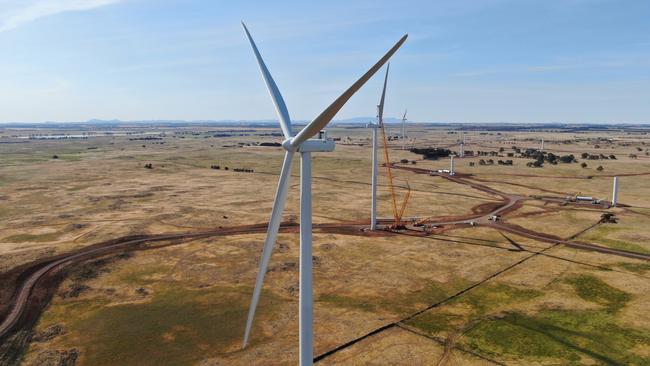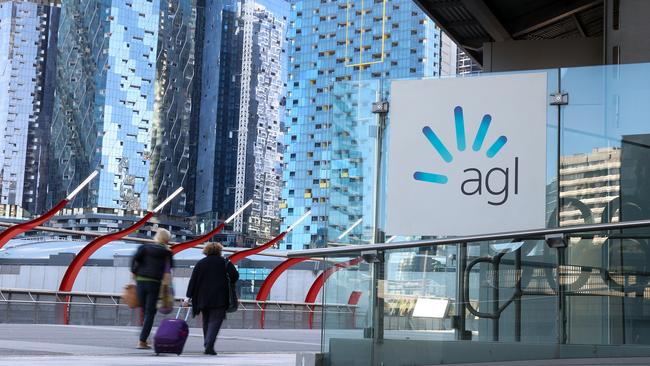Citi Australia expands team helping companies in transition to a greener economy

Campbell says price premiums for green products are narrowing but investors will increasingly demand that Australian companies match the new disclosure requirements and standards of the US and Europe.
On the broader debt market, Campbell’s advice to clients is to be nimble. Volatility has narrowed the window for issuance.
“In all the client transactions we’ve done so far this year nobody’s been disappointed, that’s for sure. That’s because it’s got worse or it’s got harder,” he says.
Campbell is now one of 30 Citi executives in a global team advising and raising capital across businesses in transition. “It’s rewiring economies, the circular economy approach in how we attack wastewater, carbon, the environment and nature capital. Financing is the enabler,” he says.

Citi Australia has had a run of ESG transactions, recently as structural adviser on Fortescue’s $800m green bond and joint lead manager on the NSW 10-year $1.5bn green bond. Last year it was joint lead manager on green bond raisings for Woolworths, Lendlease and Auckland Council.
On the M&A front it advised Mercury in buying Tilt Renewables and AusNet on Brookfield’s $17.8bn bid. Citi was also engaged by Brookfield and Grok Ventures in their bid for AGL.
Internal restructuring of corporates presents new opportunity. Last year Citi helped Daimler in Europe split its businesses into two pure plays: one in passenger vehicles heading towards an EV future and the other in trucks headed towards hydrogen.
“That’s different incentives – different capital and cash burn required, different technology, different innovations that are required to shore up those businesses. So let’s build them out so they can run their own course,” Campbell says.
Over time he says the market has tended to favour pure plays over diversified companies. And in Australia AGL faces a similar challenge. “What does brown to green look like? And how do we get those companies to ensure that they are supported through that, because it is a different need of capital.” More patient capital is in demand, which explains the presence of global firms like Brookfield and Apollo that recently announced a transition fund.
AGL is unfinished business for Brookfield – at least that is what the market is signalling, given the premium in the share price on Friday.
“AGL is one of our largest emitters and it is in the space of renewables and is well positioned to ensure that it can capture the future economy,” Campbell says.
“I don’t think that’s today by the way.
“This is someone thinking well ahead of where the economies need to go, whether in rewiring or new energy innovation.”

When sustainable financing took off, companies pitched the green use of proceeds. That led to a flood of fixed income into green finance. What started as a treasury product is now a top-down strategy. Yet as sustainable financing becomes more mainstream Campbell says premium pricing is fading. Last year’s ‘‘greenium’’ of a 5 to 15 basis point discount over client’s existing curves has been whittled away.
Going forward, he believes any favourable pricing will have much more to do with ESG ratings on the pathway to transition as set by the market. “If a company is at the top of its sector, it will get the best capital costs from the market because everyone goes ‘I love what they are doing’. If you have 30 to 50 per cent still from fossil fuel revenues in the future, you’ll be taxed,” he says.
It is now regulators changing capital market behaviour.
Citi sees an increase in companies seeking advice on disclosure so they can continue to access global markets. And the SEC’s plan to mandate climate risk disclosure looms large.
“When we have so much capital out of the US coming into Australia, we would be naive to think US investors aren’t going to start saying ‘hey, are you doing TCFDs?’ – climate-related financial disclosures. I think you will find that a lot of Australian companies that deal with the US are going to have to come become compliant very quickly,” says Campbell.
Citi’s other interest is in funding new technology. Innovators that failed to get support before the energy crisis are now back in vogue. “Our role is to try and match that change in technology, the change in attitude, capture that energy and trying to help companies and our clients ride with it,” he says.

One concept yet to land in the Australian psyche is nature capital or biodiversity.
“I was at an Australian Strategic Policy Institute conference and one of the speakers said nature capital was the new infrastructure. I thought that was very well put,” Campbell says.
Nature capital spans far more than injecting carbon emissions into sinks and tree planting. “It is next challenge: ensuring that we do work both sides of the balance sheet of environment. We have Tasmania, we have Australia as a destination. Why can’t we link biodiversity nature capital to more tourism, more jobs? And we’re also a country that needs security of water,” says Campbell.
The question is how big business and bankers tackle natural capital. “I don’t have a perfect answer because it’s so fresh and so new. We’re learning on the run.”
Once again, the future could be stick rather than carrot. TCFDs are now broadening to TNFD – nature-based disclosure.
“That’s the next form of disclosure around how businesses address both climate change, but more water security and how waste can be made more recyclable,” says Campbell.
Citi’s new green chief remains close to the markets as vice chairman of debt capital markets. And even in a jittery market, deals are still being done.
“We are getting a few more consistent days in a row but just below the surface remains rates, inflation, recession talks, supply chain constraints and the protracted war in Ukraine, which means you could have an off day, go to market and it could fall apart. We have had more zero days of no issuance this year than the last three,” he says.
“Our advice to clients is have the programs ready at the drop of a hat because the market’s windows are much more narrow than we’ve seen in the past three years.”



Citi Australia is building out its banking and capital markets business, moving head of debt capital markets Ian Campbell to a new role running corporate transition and sustainability.